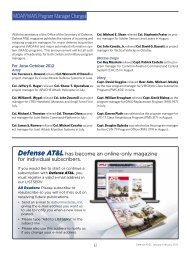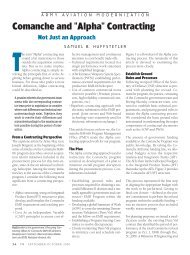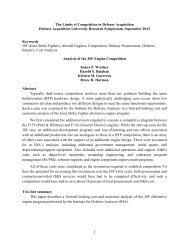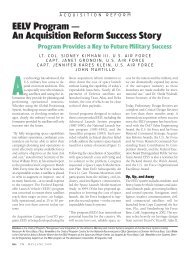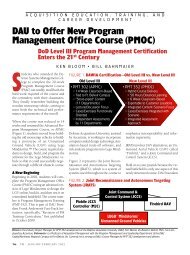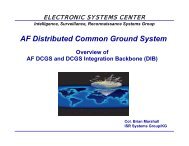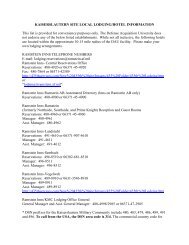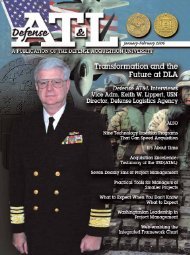Defense ARJ - Defense Acquisition University
Defense ARJ - Defense Acquisition University
Defense ARJ - Defense Acquisition University
Create successful ePaper yourself
Turn your PDF publications into a flip-book with our unique Google optimized e-Paper software.
HoW to Make incentiVe systeM of anD systeMs aWarD DeVeloPMent<br />
fees Work<br />
Fundamental to making a good business decision on which incentive tool will<br />
yield the desired behavior is a thorough knowledge of program risk and contract<br />
types, and particularly how contract type impacts risk. Part 16 of the FAR has an<br />
excellent treatment of contract types. The use of appropriate contract types and<br />
associated incentives represents a foundational communication and risk tool for the<br />
acquisition professional.<br />
This first finding might lead one to conclude that if award fee requires additional<br />
administrative effort, people, and cost, and should only be used when the work to be<br />
performed is such that it is neither feasible nor effective to devise objective incentive<br />
targets, then why use award fee at all? The answer is there are times when only<br />
a subjective incentive will achieve the desired goal or outcome. Subjective measures<br />
may be appropriate to drive critical processes, management responsiveness, and other<br />
unquantifiable behaviors. In those situations, award fee may be used as long as the<br />
expected benefits are sufficient to warrant the additional administrative effort and<br />
cost. Due to the complexity and difficulties associated with award fee contracts, most<br />
of the findings in the remainder of the article will focus on award fee.<br />
consistent incentiVe PHilosoPHy<br />
Every government buying activity should have a clearly defined incentive philosophy<br />
and broadly communicate that philosophy to its personnel and potential sources.<br />
Remember, however, that consistency and flexibility are not mutually exclusive. A<br />
consistent incentive policy can and should provide flexibility to arrive at an appropriate<br />
incentive strategy that suits the circumstances of each contract action. This may<br />
cause one to use multiple incentive types, as is occurring in many successful incentive<br />
programs.<br />
Use the contract and incentive plan to communicate the philosophy and overall<br />
mission objectives to the contractor. The result will be consistent communication<br />
between the buying activity and the contractor community.<br />
MultiPle incentiVe-tyPe contracts—BuilD to neeD<br />
According to the majority of organizations interviewed, the combination of<br />
objective and subjective measures indicated the strongest correlation to expected<br />
outcomes. The subjective measures were only used when objective measures alone<br />
would not achieve the desired outcome to the same level.<br />
Base fee—an inteGral Part of cost-Plus-aWarD-fee contracts<br />
The research team found that organizations that were successfully implementing<br />
CPAF understood the purpose and value of using a base fee as a leverage tool for the<br />
proper use of the award fee portion of CPAF. The DFARS 216.405-2(c) (iii) currently<br />
states, “the base fee shall not exceed 3 percent of the estimated cost of the contract<br />
exclusive of fee” (DFARS, July 2006).<br />
Using a base fee allows the government to reward the contractor’s “best efforts”<br />
without compromising the intent of the award fee portion. In a scenario where the<br />
contract calls for no base fee, contractors could provide their best efforts for the<br />
137



